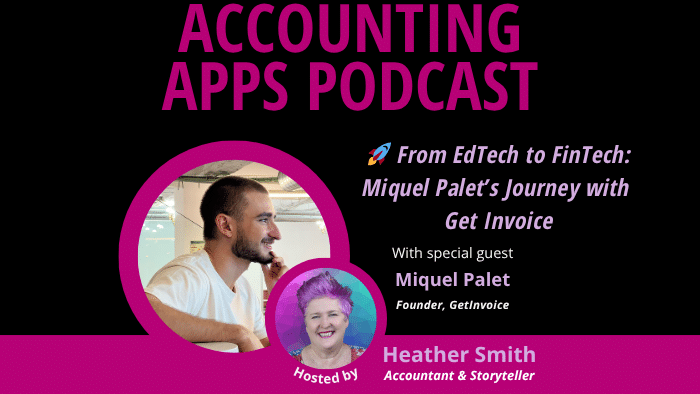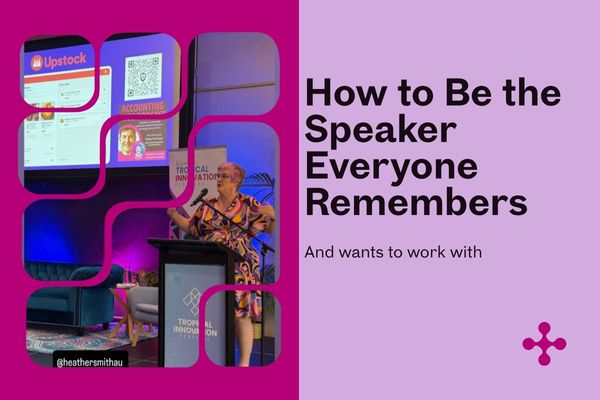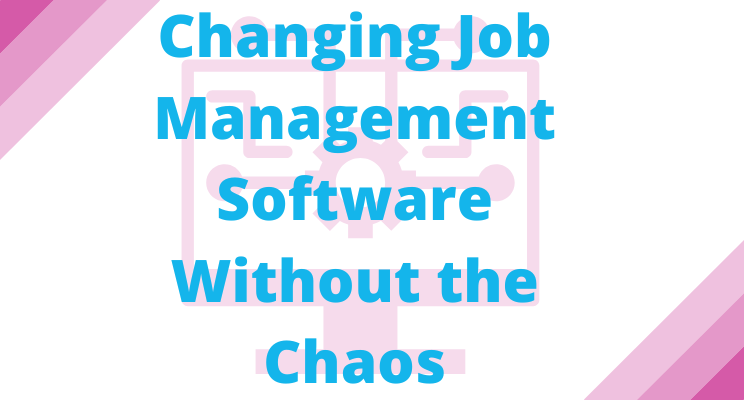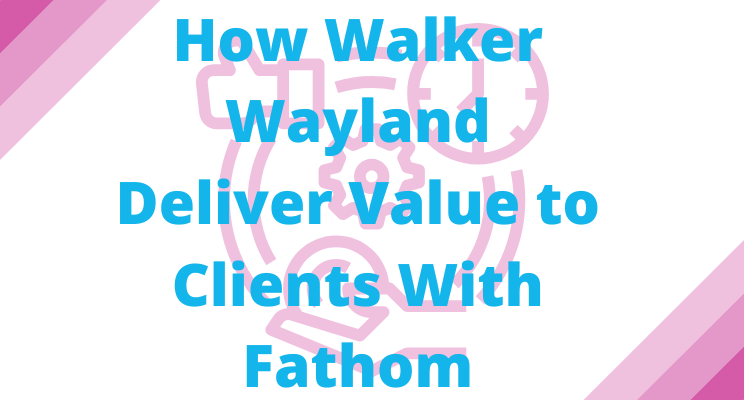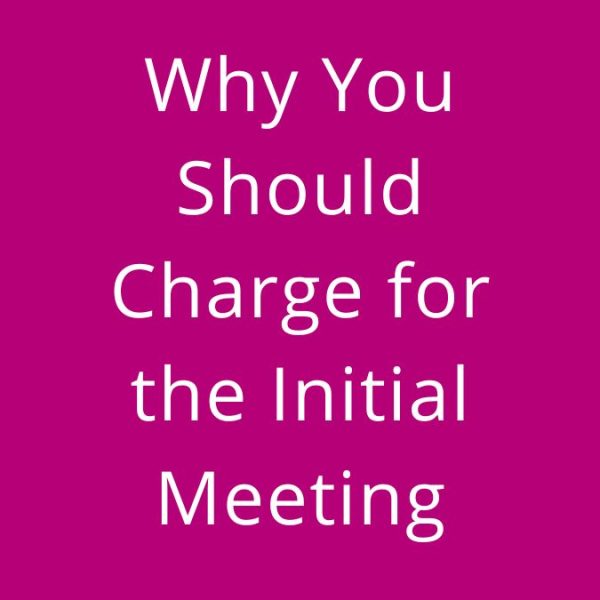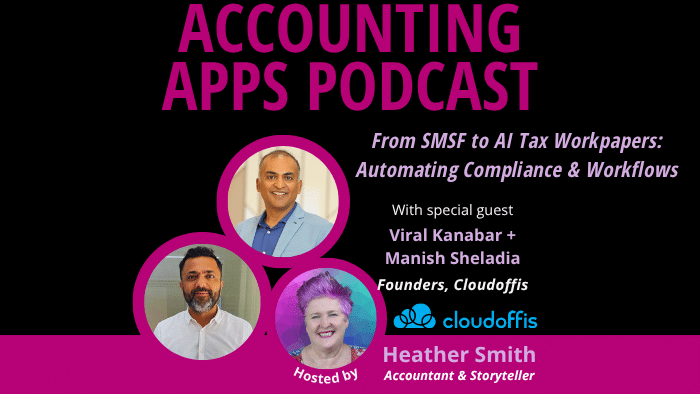“We really want to unlock value. And I think that, you know, that starts with a user. It starts with a user engagement”.
“Be curious, you know. Look at your pain points and make sure you’re using the solution you have”.
– James Chisham, Vice President of Product Management at Oracle NetSuite.
Today’s episode is part of a series of six interviews recorded at the Oracle CloudWorld and SuiteWorld conferences, which were held in Las Vegas in September 2024. I want to encourage you to subscribe and add them all to your playlist!
In this episode, I speak with James Chisham, Vice President of Product Management at Oracle NetSuite. James has been instrumental in advancing NetSuite’s international product offerings, particularly within the EMEA region. His leadership has helped shape NetSuite’s ERP and cloud solutions globally.
We discuss:
- Key Innovations and Product Developments at the Oracle CloudWorld and SuiteWorld conferences.
- The importance of financial exception management and how AI can provide suggestions and guidance.
- The “Act Global, Be Local” vision and the focus on localisation and compliance.
Got a packed schedule? Now you can get your CPE credits while you’re on the go! Tune in to my podcast on Earmark and earn NASBA-approved CPE or IRS-approved CE—just by listening. It’s that simple. Head to my Earmark CPE channel, register and launch the course.
Don’t miss the details at the end of this blog to learn more about Earmark CPE. Now, let’s dive into this episode! 🎧
Finally, thank you to the Oracle NetSuite teams for hosting me at your conferences.
Scroll down for a full transcript
This transcript has been generated and transcribed by AI.
Could you share a bit about your journey to becoming Vice President of Product Management at Oracle NetSuite?
James:
That’s a really, really good question, and thanks for inviting me, Heather. So I actually started out life as an accountant. So that’s that’s what I studied, and I moved into finance pretty quickly. And finance manager for many organisations, you know, as it says, typical, you know, we got into a situation where we needed to find a new accounting system. I put my hand forward to help implement that, and that went well. And the vendor that we were working with said, maybe you should look at doing this as a career. And so I took the plunge and went off to work for a vendor. I gave up my duties with, you know, month end reports, VAT returns, and all of that joy, which was, was a struggle, but yeah. Then, then I work through, you know, ERP companies, from support through to pre sales, through to global training and through to product management, and ultimately, you know, that’s taken to me, me to where I am today as Vice President of Product Management here at Oracle NetSuite.
Heather:
I love that you started that journey as an accountant, because I know that some accountants have this argument that accountants shouldn’t touch technology. That’s for someone else.
James:
Yeah, that’s an interesting one. And funnily enough, yeah, that there was always this notion that IT departments should be, you know, the people that run these things. And, you know, I’m not of that mindset. You know, finance departments need, you know, great tools, you know, and they should be the people driving those decisions. And, you know, I thought at that time, you know, that’s where I’d want to be and help organisations, you know, choose the right accounting software.
Heather:
Well, hopefully that inspires a few people. So we’re here in Las Vegas at SuiteWorld.
What are some of the key innovations or product developments that have been introduced recently? How do you see them shaping the future of the platform?
James:
Yeah, so it’s a really good question. And, you know, as you’d have said through Evan’s keynote, there was, there was a raft of announcements. And, you know, interestingly, I think I’ve, you know, I’ve got a take on this, you know, I really liked, actually, our customer, Vitalise Health, who came up on stage, and, you know, talked about their experience. And I think actually, you know the kind of the theme of what we’re trying to get across is, you know how our customers use the suite. They affectionately and again, you know from an accounting background, bank reconciliation, you know things of that nature, and you know how they’ve been on a journey to actually utilise the system of things of that nature. So I’ve kind of dodged your question a little bit there. And as much as that, you know, I find that really interesting. And I think you know, what we’re trying to get our customers to do is unlock the power of what they’ve got. I think if we then look at some of the newer announcements, clearly, I’d be remiss if I didn’t mention AI, it’s all pervasive. It’s everywhere. But I think the other thing, I think that’s really useful for our customers. And another piece that I really enjoyed was Hillel Cooperman from Oracle and the Redwood Shores, you know, UI updates. I think that’s massively important for our customers today. And I think if you weave that in to kind of AI, for me, it’s about usability, you know, one of the biggest challenges, you know, we’ve just spoken about where I came from, as an accountant, and getting a system in, you know, one of the challenges is adoption. You know, people need to, want to use the system and enjoy working with it. So I actually think one of the bigger announcements for me was around, you know, our UI updates, and also some of the AI around assistance, you know, being able to talk to the system, if you will. You know, I think that that’s that’s going to really help our users and hopefully unlock the power of the suite. Some of the other things that we do, you know, it’s that classic adage, people don’t know what they don’t know.
Heather:
Yes, absolutely, absolutely. So to circle back to some of the stuff that you’re saying there, in terms of the Redwood announcement, we were in a massive tent for that, for that keynote, and Redwood trees came up amongst the on the roof of the tent, everywhere.
Was the Redwood announcement focused on the customer experience, defining what that was and being able to adapt to it?
James:
Yeah, it’s a really great point. You know, one of the things that’s easy to do as a software vendor, is come up with good ideas, you know, I think actually what we’ve done is we’ve really put the user first. And I think that’s the journey we’ve been on. And I think the Redwood analogy is a good one. You know, we really want our users to engage with the product, you know, enjoy using it. And that, you know, again, using that kind of example of the root system and interconnectedness, I guess, you know, from a Suite perspective, you know, that’s the thing that we’ve been talking about for many years. We really want to unlock value. And I think that, you know, that starts with a user. It starts with a user engagement. So the stuff that Hillel and team have, helped us with, I think is really a foundational change for us over the course of our history of 25 years in the cloud.
Heather:
I really like the analogy as well, the sort of the calming nature of the Redwood. So in terms of, you’re talking about how the AI is going to assist with adoption. And I’m speaking, I’m sort of wandering around and speaking to people at conferences, and they’re like, they want something, but they don’t even know what it actually is. And they’re almost saying to me, the person who’s coming and doing the implementation doesn’t know what they need either. They’ve got the product in place, but they don’t know where the next step is, and they’re trying to be curious, but it’s quite overwhelming and exhausting.
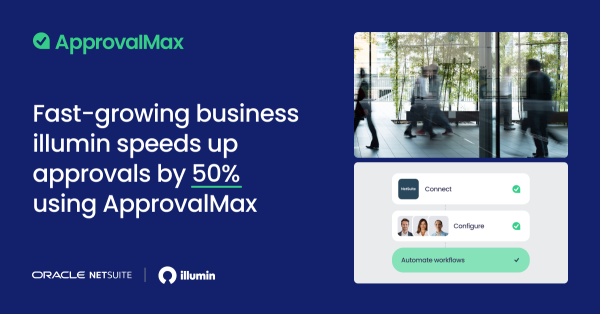
Fast-growing business illumin speeds up approvals by 50%
Is this new rollout going to surface suggestions and guide them further?
James:
Yeah. So, you know, we’re seeing this a lot, actually. It’s kind of that bell curve of adoption. And everyone was super excited about AI, and, you know, it’s great. It can write me a poem, and things of that nature. And, you know, it’s wonderful. But, you know, it piqued everybody’s curiosity. And I think then people wondering about, well, how do I use it? How do I make it real for me? So I think, you know, what we’ve tried to do is kind of weave it into the fabric of NetSuite, not bolt it on. You know, have it easy to use. Have it easy to consume. You know, clearly, some of the more straightforward, if you will, areas to do that is things like an assistant, you know. I want to ask NetSuite something. And I think an interesting one, just looping it back to the announcements piece, you know. We were talking about financial exception management. And, you know, again, you know, with my accounting hat on, you know, I think that’s a great application of it. And actually, the way that we do it feeds into what you’ve just said in terms of suggestions, what do I do? Does this make sense? And next week will guide you on that. And ultimately, what you’ll be able to do is say, actually, this looks okay. Forget about it. That will feed back into the model. You won’t need to worry about that transaction again. I think the nice piece to that, as well as is that it keeps the human in the loop, you know. So we’ll remove some of the, you know, pouring through general ledger accounts looking for anomalies. You know, the AI will do that as well, suited to do it, but it will give you suggestions, and then you can take actions. And I think that’s one of the nice things, you know, you know, for an accountant and still being able to, you know, have that overview, make decisions based on what the AI is telling you.
Heather:
Yeah, yeah, absolutely. Thank you for that.
As someone based in London, how do you see the growth and the impact on the UK and the European markets?
James:
AI specifically?
Heather:
The product, with the product developments.
James:
I mean, it’s, you know, it’s a very big market for us outside of North America. Really important, you know. So we’re seeing, you know, greater adoption of cloud. I think still, you know, there’s lots to do. You know, you still see people with on premise solutions. And, you know, I know, in Australia, for example, you know, they’ve been well ahead of that curve, you know, which is great, fantastic, you know. And, you know, making things easier,
Heather:
I always say that’s because our systems are simpler. So I’ll give you that, that that out there. And we’re not dealing with goodness. You must be dealing with 100+ languages moving into that area.
James:
Exactly, and, and obviously, you know, you’re in the realms of internationalisation, and you know, all of those aspects as well. So we have to factor that in. But we’re definitely seeing, you know, greater adoption, greater interest. And I think, you know, without, you know, diving into the pandemic and all of those, those challenges, obviously, what we saw was a big uptick. Because people working from home, people needed access to systems, and you can’t have a dusty old server sat in the back of the office. People couldn’t access them. They couldn’t go there. So I think that’s been fantastic for NetSuite. And I think, you know, we’ve seen a, you know, marked increase in activity, and the things that we’re delivering are really resonating with the UK market.
Heather:
Thank you for that. And in terms of one of the things that the company has stated, it wants to provide the world’s most localised ERP system. I think it used the word glocalisation with a G on the front.

How is your team achieving the ‘Glocalisation’ implementation?
James:
So actually, we have a trademark that we use act global, be local. So our vision is to have the most widely used global ERP, but to be local. So it feels like it’s been built for the individual user in that individual country. You know, that’s a lofty ambition. You know, clearly, there’s lots of countries, and we have a huge footprint of where our users actually use NetSuite, which plays into cloud. So in actual fact, my team, what we do in NetSuite is we have teams across the globe whose sole focus is localisation and, more importantly, compliance. So again, reversing back to finance and accounting, you know, taxation. You know, the rise of global we invoicing things of those nature. So, you know, they’re the things that keep my team awake at night. And as I said, we’ve got teams throughout the globe helping us do that.
Heather:
Yeah, keeping them awake at night. Those, those compliance requirements we can’t will be interesting to see if we can ever get international compliance. That’s always been my I know that the government’s like to control it.
James:
Oh, well, that’s right, standardisation.
Heather:
Standardisation.
James:
Could we ever achieve it? Could the banks achieve it? Could, you know, tax authorities achieve it, you know, wouldn’t that be nice?
Heather:
It would be, you know, as accountants, we adhere to international accounting standards, and accounting is a global language, and it does seem to be, you know, it is a global solution. It would be nice to push along that way. Now, are there any we have talked about the customers who are kind of overwhelmed, or they’re here at SuiteWorld and they’re curious, which is a word that’s been frequently used.
What would you suggest customers do to identify what they need and what they should be utilising within the solution?
James:
That’s a brilliant question. Thank you. Thanks for asking that, you know, because it is a bit like drinking from the fire hose. You know, we’re here in Vegas with, you know, lots of announcements, you know, and that can be overwhelming, you know. One of the things that we do as a vendor in the cloud is do two major releases per year for our customers, which is great. And there’s lots of features and functions in there. So obviously, it’s a lot for, you know, people to consider, you know. What I would say is, and I go back to the Vitalise Health, you know, example is, there’s some, you know, really key wins in terms of, you know, core financials that our customers can can look at. Things like bank reconciliation, things like bank feeds, you know, look at the automation opportunities that exist in NetSuite today. You know, it’s really important. And again, you know, things like invoicing, you know, the rise of those types of things. You know, we have those capabilities in NetSuite. So I think it’s really bringing it back to some of the basics. You know, it’s very easy to focus on the new shiny thing, or, you know, an area of the business that maybe has not been touched. But I think, you know, for, you know, from a finance and accounting background, you know, focus on the fundamentals. And I think there’s lots of things in there that the NetSuite user can do, and maybe sometimes, you know from experience, we’ve seen that people aren’t utilising those tools well enough.
Heather:
Well, one of the things from the lady from Vitalised Health, yeah, she what she did was she seemed to empower her team to be curious. She just wasn’t here on her own. She said, Go out, work out what to do and how to do it. And one of the gentlemen actually came to her and said, I’ve worked it out, but I’m gonna work myself out of a job. And she was like, that’s okay. We will find somewhere else for you. And they did, and he was doing different work and but that’s it. It’s about encouraging staff.
James:
It is, yeah, and that’s a really great analogy, because, you know, what we’ve said is, is that, you know, we want to streamline. We want to get the most out of the suite. You know, it’s not about, you know, working people out of jobs. It’s, can we add value in other parts of the business? And you know, if we can do that, then, you know, we’ve got some really great qualified people. We can start looking at other areas, you know, can we look at FP&A, things of that nature, where we can, you know, really add value for the business. Maybe take some of that stuff that should just work and operate, then look at other areas. And I think that’s been a consistent push. So, you know, if we can get our users into that space. Then obviously, we’ve got loads of other things that we’ve announced this week, you know, as well, which they can move into. But be curious, you know, look at your pain points and make sure you’re using the solution that you have.
Heather:
Yeah. Late last night, I was speaking to someone who had he said, I just have very cool, very, very basic NetSuite. People can’t believe how basic my NetSuite is. However, it replaces 10 people. He said, If you took it from me, I would retire.
What’s one key takeaway you’ve learned from coming to SuiteWorld this year?
James:
You know. I think, you know, we can’t escape the AI message. That’s, it’s such a big thing in the marketplace, you know. So I think it goes back to the curiosity thing, you know. Think about opportunities. You know, it can, you know, can do many different things, you know. But certainly look at it with the lens of how it can help your business. And again, look at those key business processes. You know, it certainly lends itself to doing lots of stuff. But again, you know, I just urge everybody to sort of come back and look at how it’s really going to help you as a business. How can you be more efficient, you know, how can you get people working on more value add, you know, areas you know, that they haven’t been able to do before. AI is a key message. And as I say, you know, for me, one of the key things was around, you know, the user experience that that’s absolutely key for us. You know, we want people to engage. And again, you know, think about how they’re using the system and enjoy using the system, you know, is we spend so much time working, you know? So, you know, let’s, let’s enhance that experience. And, you know, make it something a bit more immersive for the users.
Heather:
Absolutely. And one thing I’d just like to touch on with the AI, because our listeners didn’t attend the sessions is that the system is learning on your data and not on anyone else’s data. So the whole thing is secure. It’s ring fenced, and it’s learning on your data and improving it’s not kind of suddenly starting suggesting other things to you instead of seeing trends.
James:
Yeah. Absolutely correct. I mean, you know, I know that’s been something that people in you, you know, have been asking about hallucinations and all of those things. But even if we take the direct example, as we’ve spoken about Financial exceptions management, that’s all on the customer’s own data that will always reside in Oracle Cloud infrastructure. It will never be seen, it will never be touched by, you know, anybody else you know. And so those fears, can you know, can be allayed. You know, it’s, you know, look at two years worth of data, it will refresh every hour, all on the customer’s own data. So I think that’s a really powerful message, because there has been some hesitancy and some concerns around security, etc. So you know, we’re really confident that our customers will get a good experience.
Heather:
Yeah, absolutely. Thank you so much for spending some time with me, James.
How can our listeners contact you?
James:
So, yeah, I mean, they should reach out. I’m on LinkedIn. You know, we’re always happy to engage with our customers, users. Anyone’s got any questions, you know, feel free to reach out.
Heather:
Awesome. Thank you so much.
James:
Thanks, Heather.
Earmark CPE is registered with the National Association of State Boards of Accountancy (NASBA) as a sponsor of continuing professional education on the National Registry of CPE Sponsors. State boards of accountancy have final authority on the acceptance of individual courses for CPE credit. Complaints regarding registered sponsors may be submitted to the National Registry of CPE Sponsors through its website: www.NASBARegistry.org.





